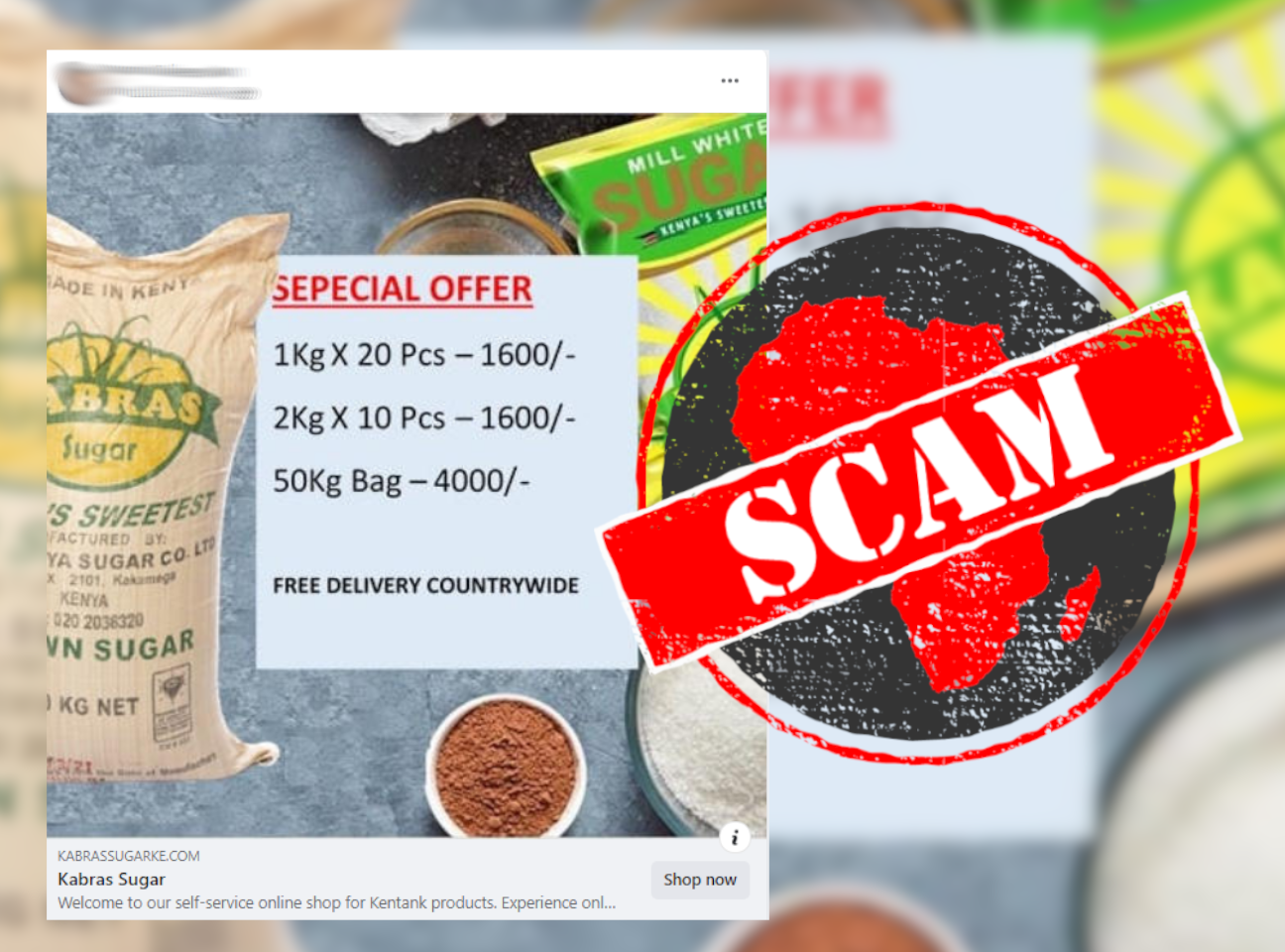A link to a website offering low-cost bulk sugar from Kenyan sugar company Kabras has been circulating on Facebook.
A graphic in the post reads: “SEPECIAL OFFER 1Kg X20 Pcs – 1600/- 2KgX 10Pcs -1600/- 50Kg Bag – 4000/- FREE DELIVERY COUNTRYWIDE.”
The website – kabrassugarke.com – lists different packages of Kabras sugar for sale. Customers are told to pay into the Standard Chartered Bank account 0100430744200, supposedly registered under Kabras Sugar Ltd.
Alternatively, customers can pay via paybill number 329329 to the same account.
They are then told to send the transaction details to the sales team via the email address [email protected] or the Whatsapp number +254712610258.
But is the website and “sepecial offer” genuine? We checked.

‘Matter reported to relevant authorities’
Kabras Sugar doesn’t have a website. It does have an official Facebook page and LinkedIn account.
On 21 March 2022 the company posted a screenshot of the offer, with the address of the bogus kabrassugarke.com website, on Facebook, stamped “FAKE”.
The post reads: “Alert!!! To all our esteemed stakeholders, we are aware of a promotional post doing rounds on social media disguised as being by Kabras. Please be advised the post is a scam and has no affiliations to Kabras Sugar (West Kenya Sugar Co. Ltd).”
It adds: “The matter has been reported to the relevant authorities. All information is shared through our official channels https://www.facebook.com/kabrassugar/ https://www.linkedin.com/company/kabras-sugar/.”
Republish our content for free
For publishers: what to do if your post is rated false
A fact-checker has rated your Facebook or Instagram post as “false”, “altered”, “partly false” or “missing context”. This could have serious consequences. What do you do?
Click on our guide for the steps you should follow.
Publishers guideAfrica Check teams up with Facebook
Africa Check is a partner in Meta's third-party fact-checking programme to help stop the spread of false information on social media.
The content we rate as “false” will be downgraded on Facebook and Instagram. This means fewer people will see it.
You can also help identify false information on Facebook. This guide explains how.


Add new comment